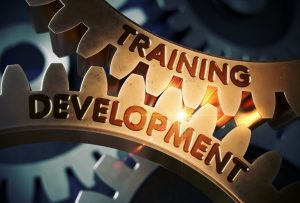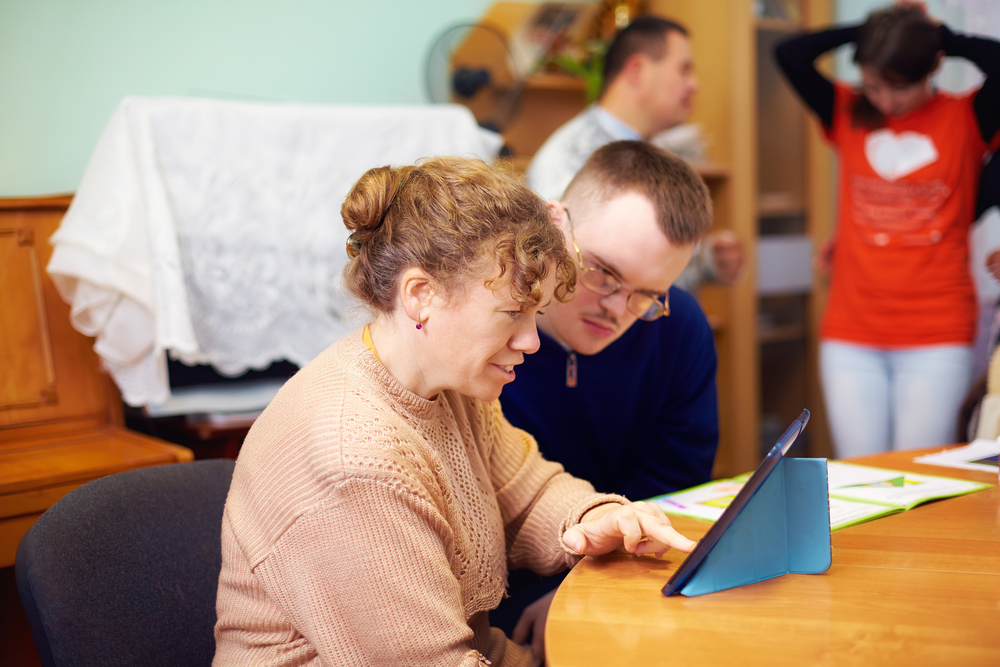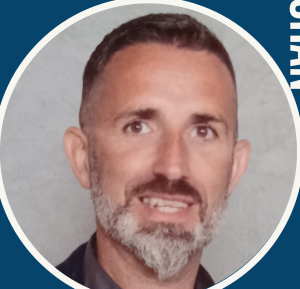A Career In Social Care? What to expect – part 3
The third and final part of Sean Bohan's three-blog series on the benefits of a career in Social Care:
In Part Two of this series, I explored the concept of the 70-20-10 Rule of learning and development, and its role in opening up work opportunities and personal development.
In Part One of this series, I outlined how my entry into a career in Social Care has given me a career path from working frontline ‘in the trenches’, through mid-level management and all the way into top level governance in the sector as an Executive.
The Frontline to Leadership
I had the privilege to work frontline and then move into roles such as a team leader, day services facilitator and day service manager, within the first 4 years of entering into social care.
Within 2 years of working in residential care, I moved to an organisation that was supporting people in what is known as “decongregration” as part of the national policy called “Time to Move on”. My role as team leader was to head up the setting up of a new residential house for 2 people with extra support needs; both of whom were non-verbal and had lived within a campus: an institutional clinical style unit setting where pretty much everything in terms of their lives existed within the walls of the campus.
I was quite shocked, and maybe a little naïve, to enter into this world and discover what group residential, institutional life was like - I didn’t realise these styles of services still existed.

What shocked me most was two-fold; firstly, there was possibly a 100+ people living a life of exclusion from the rest of society; where outside the walls of the campus just minutes away life was in full flow with people living at home with their families, commuting to and from work, socialising with friends, experiencing intimate relationships and all the magic of everyday life, and the opportunities and experiences that come with it.
Each person I met had been moved at a very young age and had now lived away from their loved ones for many decades, having missed out on any chance of obtaining valued roles; of living the good life.
Every day I would drive in to campus - the poor reflection of a world that had been created for this group of people, the forgotten people - and every day I would leave it to return to the world of experiences, opportunities and real life.
But what also struck me in the midst of this parallel world; was the amazing staff team of Healthcare Assistants and Nursing staff that in essence were working the “medical model”; who brought a humanness and authentic approach into every interaction with those they were supporting. It was what being human is about, in practice every day.

“Most of the greatest leaders had no intention of becoming one”
Learning to be a Leader
What that following year taught me was that leadership is neither a title nor a course you complete; people become leaders by the way they behave and how they treat others. Leaders are people who impact the lives of many; by leaving people better off than they found them; they leave a real legacy with all those they come into contact with.
People often asked me who was your favourite leader to work for. I always struggled to answer this, but I would say, in those early days in social care, it was the HCA’s and Nurses that taught me how to connect with a person who is non-verbal and who sees and connects with the world differently; they taught me, through their actions, how to show people respect, dignity and compassion on a basic human level.

"What's Your Legacy?"
As I formally became a “Team Leader” I realised that our role in social care is to facilitate a life not a service, for each and every person we have the privilege to support; And it’s exactly that it is one of life’s greatest privileges to be able to enter into someone’s else’s life, and through our approach we have the opportunity and ability to impact someone’s life.
Not many other industries give you the opportunity to do this every single day. Leadership is not about titles or hierarchical levels within a company. It’s understanding that if you understand yourself, and you develop a growth mind-set, you can lead without a title. You can be the difference we need to see in our society, our communities.
After two years of running a day service, an advert for a “Coordinator” within my organisation came through by email. I had just prior to this been invited by my CEO to attend a 3-day conference on Social Role Valorisation (SRV), by a group of international speakers who were experts in the framework. I have always loved personal development and, after 3 days of listening to new ideas, I thought I would love to work in this way. So I decided to apply for the role advertised; after a comprehensive essay submission and 2 interviews, I won one of the six places, and so started my journey into the world of the social model, valued social roles, and the good life….
“Do No Further Harm”
As part of the new role our induction consisted of 5 days of training into the framework of SRV with a well-known international SRV expert. Our CEO had committed us to 2 years training in the framework plus a personal/professional development coach for the Team of 6, our Manager, the CEO and the Head of Finance.
First Day: On our first day workshop, we heard real stories of those who had worked with this framework and the impact it had on the lives of many people with extra support needs. The facilitator told us about the doctorate “do no further harm” and that we needed as a leadership group at all levels within the organisation, Board-Executive-Departmental, to be committed to both believe in, buy in and commit to a long-term process; and understand that there would be resistance from within our organisation, union members, families, society, and also from the people we support who may not want this. I remember all us of talking afterwards wondering could we really do this…and wondering could we go back to our old roles - the fear had truly set in!

Day Two: On our second day we listened intently to more stories of just how people’s lives had changed for the better and realised it was a process. This lead me through a wonderful journey of highs and lows over 8 years of being champions of change; from working on the closing down of institutions in Ireland and eventually mentoring, coaching, teaching other organisations and coordinators in how to work this model into practice for real sustainable results. Real Legacy Work….
Then I got the opportunity to become a Project Manager for an organisation that was closing down one HSE residential unit and quite a large number of residential services; this allowed me to sit on the SMT Team which was my first real experience at the “decision makers table” within an organisation.

I never went seeking to get promotions; what always mattered to me was the challenge or the opportunity to make real change; I thought that, by being at the top table, with the heads of functions I would be able to impact and influence change for more people, both the people we supported; their families and the people behind the titles who every day make it happen…. This appealed to me and was an exciting prospect.
Over the next two years as project manager I became a mentor to others both internally with our organisation and for the HSE, training new coordinators in the process towards individualised service design and delivery; the SRV Framework, Futures Planning, Circle of Supports for Families, Customised Employment. I participated in governance meetings in partnership with the HSE which allowed me to be exposed to governance meetings at national level which was a great experience, and also to sit on the National Quality Improvement Group for the HSE.

As a Project Manager I learned a lot in terms of Change Management Principles; developing and delivering proposals on large scale projects with large funding expectations. But all in all, it taught me three important principles:
- The person must be at the heart of everything we say and do, always
- The relationship should always be our number 1 priority
- It’s not a ‘make a wish’ foundation; we have to find ways to hold the integrity and balance of pragmatism throughout the process
We must respect that some people are happy with the lives they have and know, and feel safe within group shared settings. It really is about respecting each person’s choice, and their decision as to whether or not they want what is being offered in terms of service design/delivery. And being genuinely person centred.
Real Leadership in Healthcare
- The Person is at the heart of everything we say and do
- The relationship is our number 1 priority always
- Quality Is the best business plan
- The best leaders never wanted to be leaders
- Leave a legacy
Sean Bohan is a graduate of the Open Training College. He has enjoyed a career spanning 20 years in the social care sector, working in roles at levels from frontline to management - overseeing Decongregation projects nationally - and eventually at executive level as Head of Quality and Quality Improvement across young person services to end of life care; supporting the areas of Intellectual Disabilities, and physical, neurological and mental health.
As well as his role with the OTC, Sean is the founder of his own company '2nd Mountain' and The Legacy Series.

Find out about the BA in Social Care
Enquiries to Conor: cmurray@opentrainingcollege.com or call 086 0756580 (Business hours 9am-5pm)
